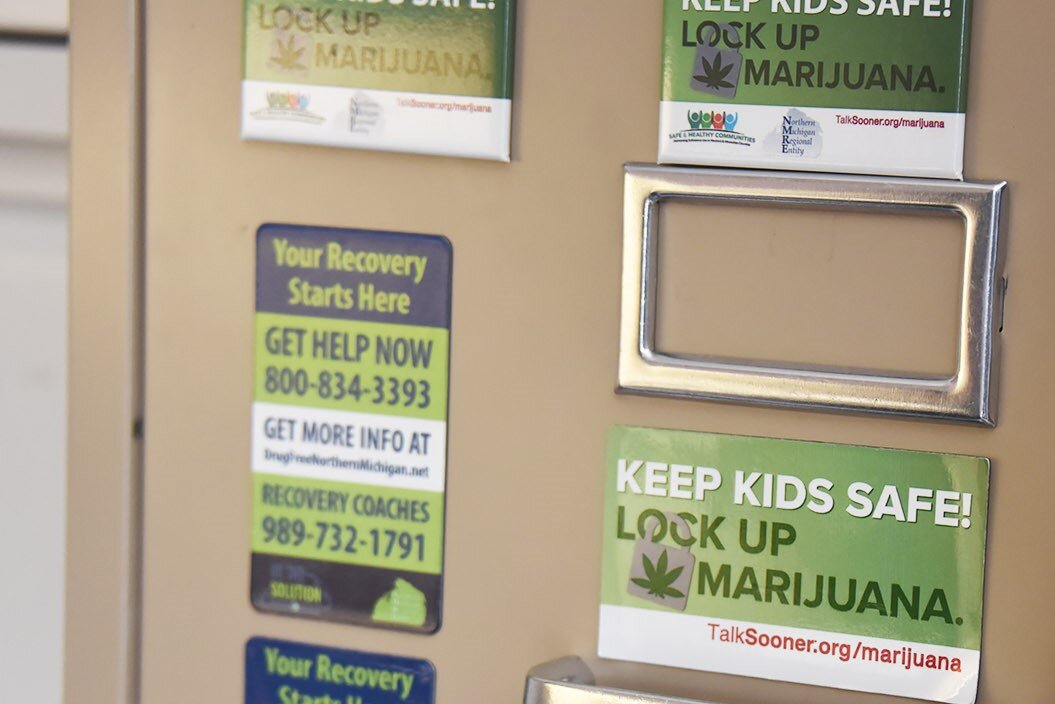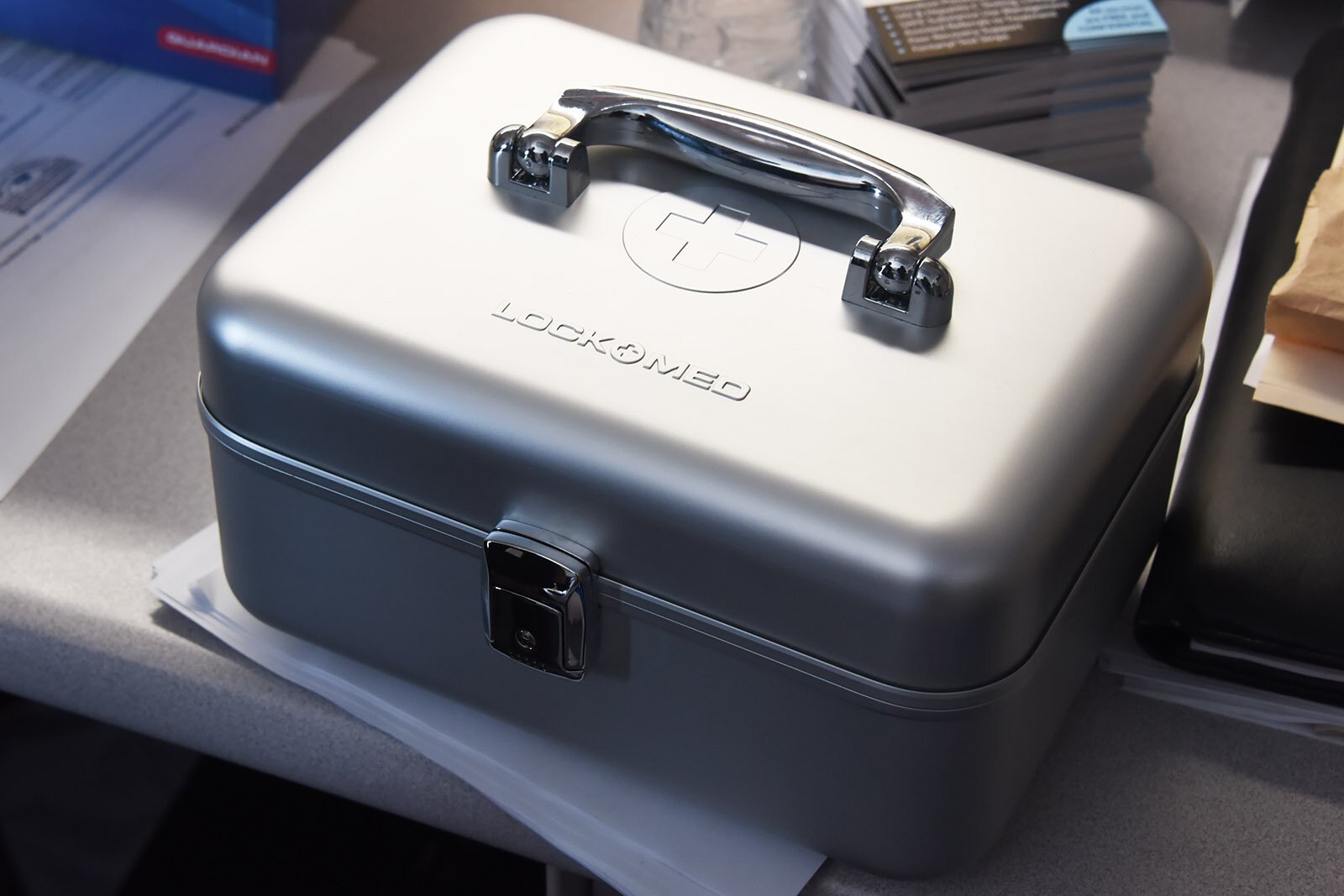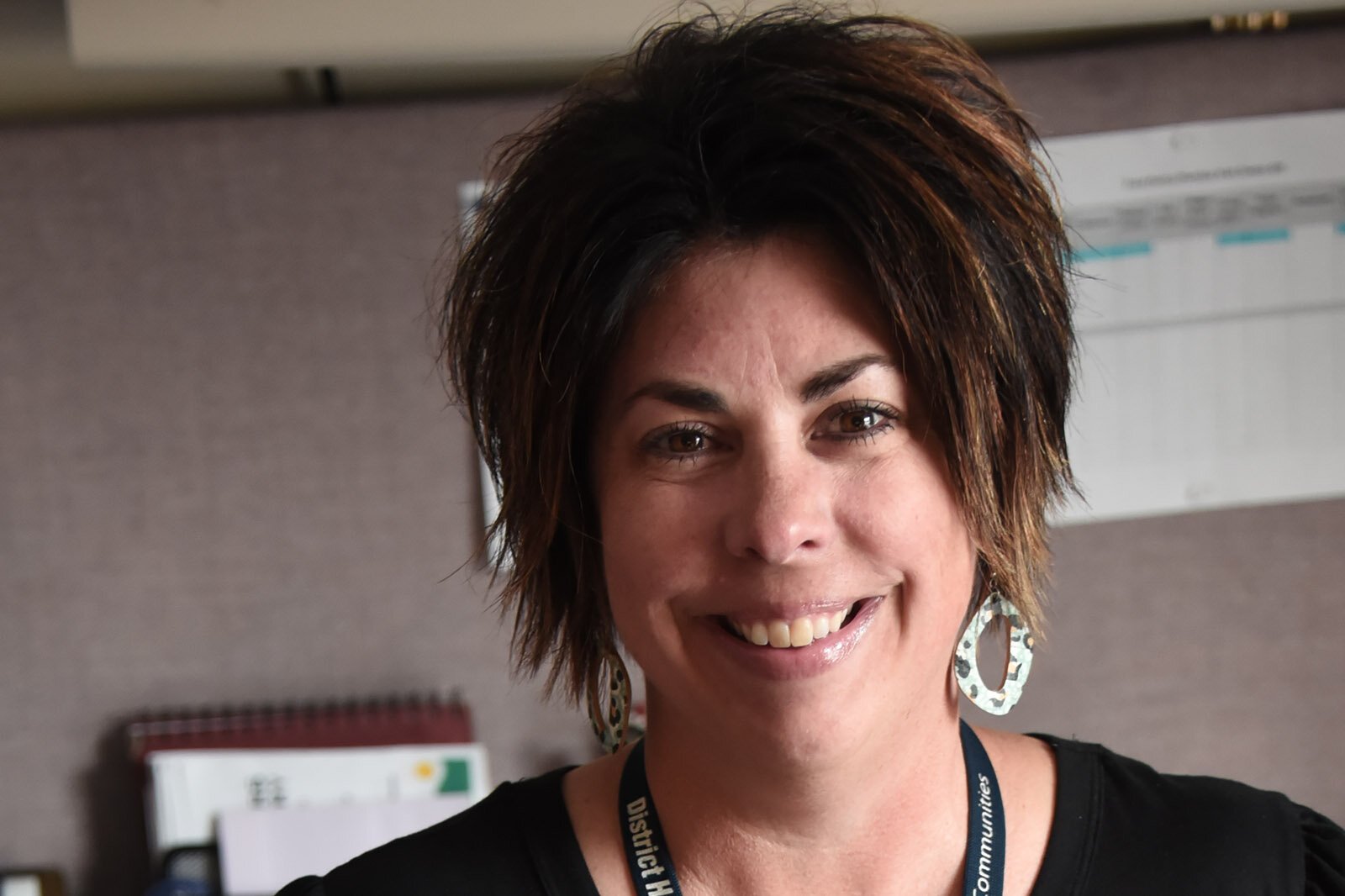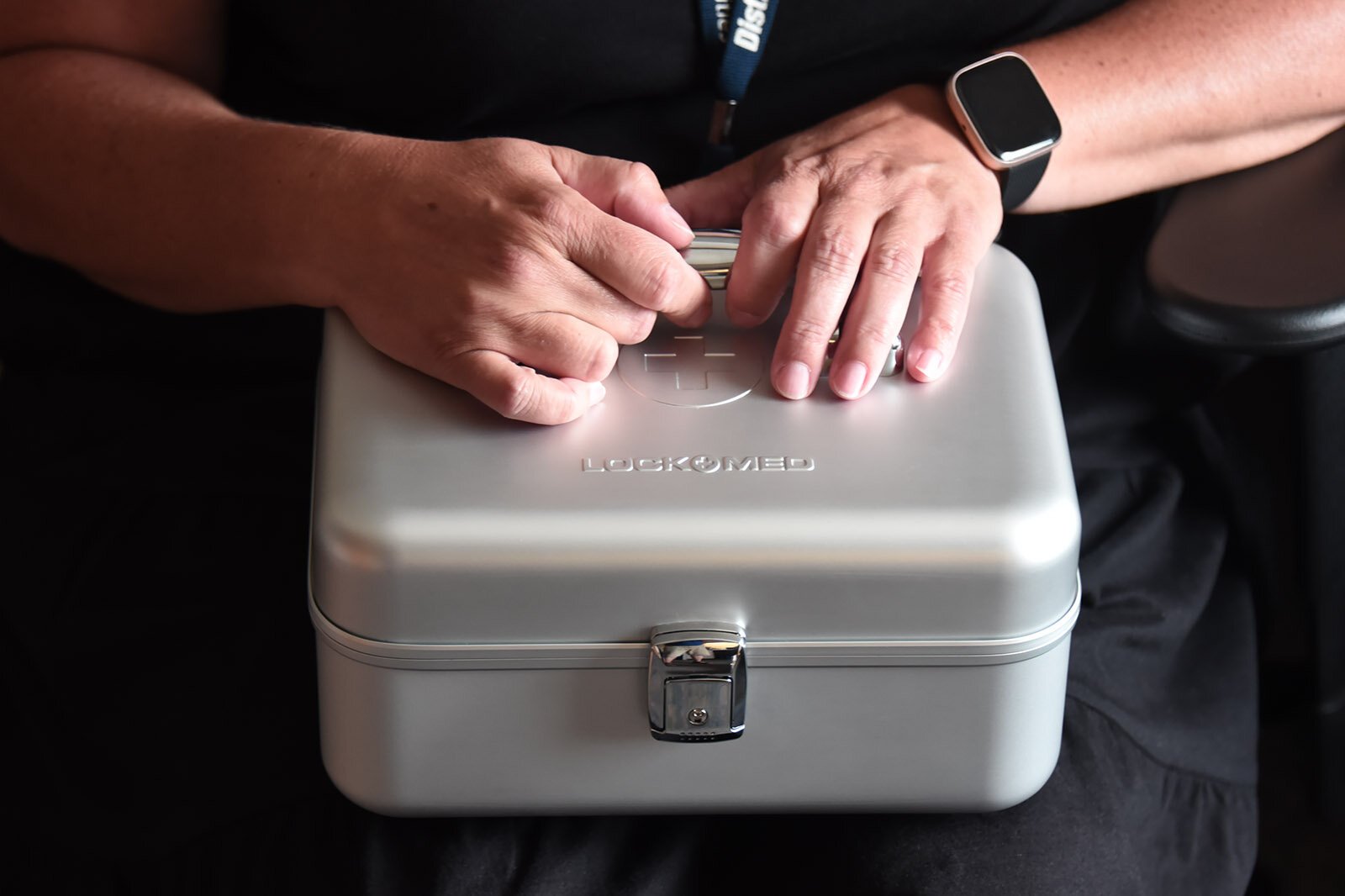If you suspect a child has ingested a marijuana product, call poison control, 800-222-1222 and seek immediate medical assistance.
The Yours, Mine, and Ours — Public Health series highlights how our state's public health agencies keep us healthy, safe, and informed about issues impacting physical and mental health in our communities, homes, workplaces, and schools. The series is made possible with funding from the Michigan Association for Local Public Health.

As more adults use marijuana, more young children are experiencing marijuana poisoning. A national study reported that half of all calls to poison centers concerning young children with marijuana poisoning involved children aged 3 to 5 eating THC edibles like gummies.

“We’ve seen huge increases in Michigan. The most common group that consumes a product [containing THC] unknowingly is under five years old,” says Josh Mickelson, Luce-Mackinac-Alger-Schoolcraft District Health Department (LMAS) community health director. “These products have a resemblance to real foods as far as colors and packaging, and the products that they come in — cookies, candies, mints, drinks — are like safe products kids find in their homes.”
Symptoms of marijuana poisoning in kids include slurred speech, fast heart rate, intense sleepiness, anxiety, nausea, and vomiting. In serious cases, kids have been hospitalized with trouble breathing, seizures, hallucinations, low blood pressure, slow heart rate, central nervous system depression, and coma. Factors influencing the severity of marijuana poisoning include the strength of the product, the amount of product taken, and the weight of the child.
“The short-term effects can last for hours. Younger children tend to see more severe symptoms and may require hospital admission for supervision and IV fluids,” Mickelson says. “Long-term effects are unknown at this point. There have not really been any long-term studies on all of this, even with the data that we see from the poison control centers.”

LMAS is one of many local health departments across Michigan mounting education and safe marijuana storage campaigns to decrease the number of young children harmed by marijuana poisoning.
A Michigan ballot initiative to legalize marijuana passed in 2018. In December 2019, the state-licensed sales of recreational cannabis launched. (Medical marijuana has been legal in the state since 2008.) Today, approximately 330 active medical marijuana dispensaries and 660 recreational cannabis dispensaries are in business across the state. Michigan now sells more marijuana than any other Midwestern state with $3.2 billion in annual sales — and sells more weed than California.
While LMAS doesn’t have data that reflects the number of young children admitted to emergency rooms in its service area, Mickelson shares that incidents of unintentional cannabis toxicity among Michigan’s children ages 5 and younger increased 75% from 2020 to 2022. For ages 6 through 13, the numbers of THC-poisoned children increased 60%.
Mickelson tells parents who suspect their child may have ingested a marijuana product to contact the poison control center, whether they have symptoms or not.
“If you have the inkling that there may have been some missing or the child starts having some of those signs and symptoms, get medical attention immediately,” he says. “The processing of ingested marijuana can take effect slower than other forms of use. The same signs and symptoms might not appear for 30 minutes to a few hours later. And at that point, they could be seeing relatively severe symptoms. The symptoms could last for a long period of time depending on that kid’s metabolism.”
LMAS offers home visiting programs to educate parents on safe storage of marijuana products as well as prevention education in the four counties’ schools and communities.
“We start classes in third grade about how products are labeled and explain that they look like candy or cookies,” Mickelson says. “Our harm reduction and peer recovery programs do a lot of education on safe storage of materials, including marijuana. We can give their clients locking pill bottles, locking medicine boxes, and gun locking kits that quite a few clients use to safely store marijuana products to make sure children can’t access them.”

In Crawford, Lake, Mason, and Oceana counties, District #10 Health Department (DHD#10) also distributes marijuana lock boxes to families. Its “Keep kids safe — lock up marijuana” campaign has featured billboards and provided information to parents, grandparents, and other adults involved in children’s lives.
“It’s promoting locking up marijuana — keeping all your marijuana products stored in a location that is secured with a lock and out of sight — and monitoring what you have,” says Angela Gullekson, DHD#10 public health educator and certified prevention specialist.

Marijuana dangers for teens and tweens
In addition to community education about the risks of marijuana poisoning in young children, DHD#10 does programming with middle school and high school students. While tweens and teens are at less risk for accidental marijuana poisoning, marijuana use can have grave impacts on their developing brains. Gullekson explains that significant brain development takes place during adolescence and continues through the mid-20s.
“Legalized marijuana has made it normalized in our communities. Therefore, children’s and teens’ perception of risk has decreased, meaning that they don’t see it as a dangerous substance or unhealthy,” Gullekson says. “They really don’t see anything wrong with it. Oftentimes, many people in their lives, including maybe their parents, are using as well. So, that really decreases the perception of risk associated with it.”
In addition to building connections responsible for necessary skills and abilities, as the prefrontal cortex matures, humans develop the ability to assess situations, make good decisions, and control emotions and impulses. Marijuana use during the formative teen years can thwart this development.
“Anytime someone starts using marijuana before the age of 18, it may affect how those connections are being made in the brain for those essential functions, and sometimes those changes can be permanent,” Gullekson says. “Cannabis use during this time can also affect memory, attention, concentration, movement, time perception, cognitive abilities, problem solving, learning, coordination, and reaction time. Use can also lead to permanent IQ loss of up to eight points when people start using at a young age.”

Gullekson shares that teens ages 12 through 17 who use marijuana have decreased school performance, lower grades, and increased likelihood of dropping out. They are also at higher risk for mental health issues like anxiety, depression, psychosis, and substance use disorder (SUD). And, if the police catch them with marijuana, a Minor in Possession conviction can lead to loss of federal financial aid in college.
When educating parents, Gullekson emphasizes the importance of maintaining open communication with teens so the topic of substance use can be comfortably discussed.
“Give your child guidance, answer any questions that they have and set clear expectations and boundaries about drug use including consequences,” Gullekson says. “Discuss a plan if they get into a difficult situation and are offered marijuana.”
Her sessions with parents discuss how to have these conversations about the potential impacts of using marijuana in an age-appropriate manner. She also shares tips on how parents can help teens overcome peer pressure — and the importance of letting teens know that a parent is just a phone call away if they find themselves needing to escape an uncomfortable situation where drugs are being used.
“Be familiar with your teen’s friends and their families and get to know them. It’s good for you to know where your child is, what they’re doing, and who they’re hanging out with. If you’re having teens at your home, make sure that you’re supervising activities,” Gullekson concludes. “Be a good role model, so don’t use it in front of your children. Keep them out of harm’s way.”
Estelle Slootmaker spends most workdays as a journalist and book editor. She also writes poetry and has two books underway: her great great grandmother’s memoir of childhood on Mackinac Island and a children’s picture book. You can contact her at Estelle.Slootmaker@gmail.com.
Photos by John Russell.
Josh Mickelson photo courtesy subject.
The Yours, Mine, and Ours — Public Health series highlights how our state’s public health agencies keep us healthy, safe, and informed about issues impacting physical and mental health in our communities, homes, workplaces, and schools. The series is made possible with funding from the Michigan Association for Local Public Health.The Yours, Mine, and Ours — Public Health series highlights how our state’s public health agencies keep us healthy, safe, and informed about issues impacting physical and mental health in our communities, homes, workplaces, and schools. The series is made possible with funding from the Michigan Association for Local Public Health.





